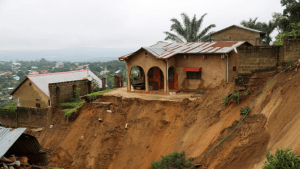With increasingly extreme weather taking a toll on farming and incomes, Zimbabwe has released a trio of climate change policies designed to make the country more resistant to climate pressures and help it meet its international carbon-cutting pledges.
The Child Friendly Climate Policy is designed to educate school children about climate change and promote climate-friendly practices, such as protection of forests and wetlands and broader use of low-emissions technologies.
A new Climate Smart Agriculture Policy, meanwhile, focuses on ensuring farmers and agricultural advisers adopt climate-hardy farming practices.
The country’s first overall National Climate Policy aims to help Zimbabwe put in place the legal structures needed to guide businesses on becoming greener to meet its emissions-cutting promises under the international Paris Agreement, said Washington Zhakata, climate change management director in the Ministry of Environment, Climate and Water.
The National Climate Policy is the first step towards achieving this, he told the Thomson Reuters Foundation in an interview.
Tirivanhu Muhwati, a climate scientist with the Ministry of Environment, Climate and Water, said the national policy will also focus heavily on adaptation to climate pressures, as most of the country’s communities are rural and depend on agriculture even as droughts intensify.
The policy has a thrust towards promoting adaptation because, as a developing country, our scope for mitigation or reducing emissions is limited because we are not all that industrialised compared to the developed world, he said.
Approximately 80% of Zimbabwe’s rural people depend on rain fed agriculture for a living, making them highly vulnerable to more extreme weather associated with climate change, said Environment, Water and Climate Minister Oppah Muchinguri Kashiri, at the launch of the policies this month.
According to the country’s submissions to the United Nations Framework Convention on Climate Change, most of Zimbabwe’s climate-changing emissions come from burning fossil fuels for energy, from agricultural production, and from waste handling and industrial processes.
The new climate change policy aims to help cut emissions by industry, energy producers, agriculture, and deforestation,among other sources.
Muhwati described the Child Friendly Climate Policy as aversion of the national climate change policy meant to help students understand climate change issues and also to promote climate friendly practices among young people.






